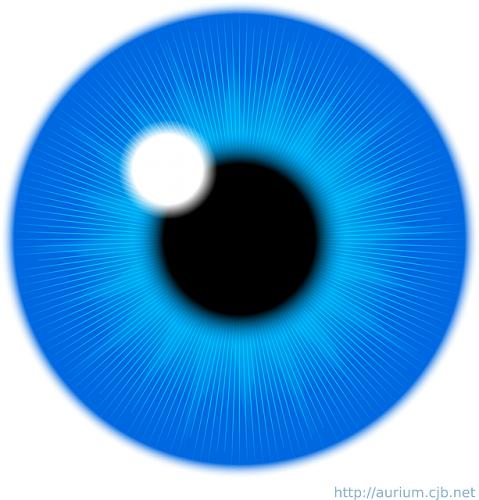Five Tips for Preserving Your Eye Health As You Age

As we get older, our propensity toward developing eye concerns grows exponentially, as does the importance of taking care of our vision.
From glaucoma to cataracts and macular degeneration, there are myriad medical issues that tend to affect the senior citizen population more than others. Staying on top of your eye health is critical to staving off such disorders. While you might not be able to fully protect your eyes from any setback, you can take measures to slow signs of aging and retain your sight.
Today, we’re sharing five tips to keep your eyes healthy as you age. Ready to learn more? Let’s get started.
1. Stay up on your eye exams.
As we age, we tend to visit the doctor more frequently as aches and pains crop up in our muscles and joints. While it’s always helpful to see a medical professional for any concerns, we tend to push eye concerns under the rug, assuming they will take care of themselves or eventually go away. Unfortunately, when left untreated, those minor issues tend to fester and exacerbate rather than move in the opposite direction.
That’s where regular eye exams come in. Attending yours is critical to finding and treating any defects as soon as they’re noticed.
Around the age of 40, start scheduling one eye exam per year, or more if you’re prone to issues in this area. Even if you don’t notice any concerns and have perfect vision, your doctor should still be looking for any preliminary signs of glaucoma or damage to your retinas.
2. Protect your eyes from the sun.
We know to slather on the sunscreen and keep our skin out of the direct sunlight whenever possible, but how often do we leave the house without remembering to grab our shades? Keeping your eyes protected from harmful UV rays is equally important.
Why? Those rays alone are enough to trigger and deepen cataracts, as well as macular degeneration. While any sunglasses are better than none, look for ones specifically designed to prevent sun damage, with UV filters included. If yours are prescription-based, you’ll be limited on the styles and designs, but at the very least, look for some that are wide enough to protect your entire eye area, wrapping around your face a little.
3. Eat well for better eye health.
Turns out, we really are what we eat. That’s why it’s important to pack your diet with healthy fruits, vegetables and lean proteins to stay in your best shape as you age.
Though it has yet to be scientifically proven across the board, there are two nutrients found in yellow and orange vegetables, known as zeaxanthin and lutein, that might help prevent certain age-related eye conditions. Consider this one more reason to fill your plate with the good stuff!
To supplement your diet, you can also take multivitamins specifically designed for seniors. Look for ones rich in Vitamin A, as well as C and E. As with starting any supplement regimen, be sure to talk to your doctor first before beginning a multivitamin.
Whereas they were deemed medically unnecessary for years, today’s modern scientists explain that, due to the poor soil quality in many parts of the world, the produce we consume isn’t as nutrient-rich as it could be or used to be. Supplements can help fill in that gap so we feel and look our best well into our senior years.
4. Give your eyes a break.
Technology has changed the way we live, work and interact with our loved ones. Today, it’s not uncommon to spend hours behind a computer screen. From FaceTiming with grandchildren to responding to emails and playing games, there are a host of activities we can perform within the digital sphere.
Yet, have you noticed that after working at the computer for a while, your eyes actually begin to burn? You’re not imagining it. Looking at the blue light of a screen for too long can harm your retinas and cause irreversible eye damage.
Give yourself a break and walk around every 10 minutes or so to allow your eyes to readjust. If you’re watching television, you can stretch it to every 30 minutes as you’re likely sitting much farther away from the screen. Still, it isn’t a bad idea to stretch and look away during commercial breaks, at least!
5. Get enough shut-eye.
After staying up far too late, you might find that it’s more difficult to see clearly the next morning. Similar to looking at a screen for too long, if you don’t allow your eyes sufficient rest, you’ll feel it the next day. Be sure to get plenty of sleep to allow your eyes to retain their necessary moisture while you recharge.
If you wear contacts to help support your vision, be sure to remove them prior to crawling into the sheets. Doing so can help protect your eyes by supplying oxygen to your corneas and make you less prone to eye infections. You can view here for more information on why it’s always a good idea to take this extra step in the evening.
Taking Care of Your Eyes for Life
Ultimately, eye health begins with us. Unless we are proactively taking care of our peepers, visiting an optometrist regularly, eating for eye health, and allowing them to rest routinely, we could be setting ourselves up for vision issues down the road.
Take the time to assess how yours look and feel. If anything seems off, contact an eye professional today to get the assistance you need. Prevention is the best tool in this case, so don’t hesitate to speak up if you need to. There’s no need to suffer in silence, or darkness, especially with so much to see and experience in those golden years.
Post Your Ad Here
Comments